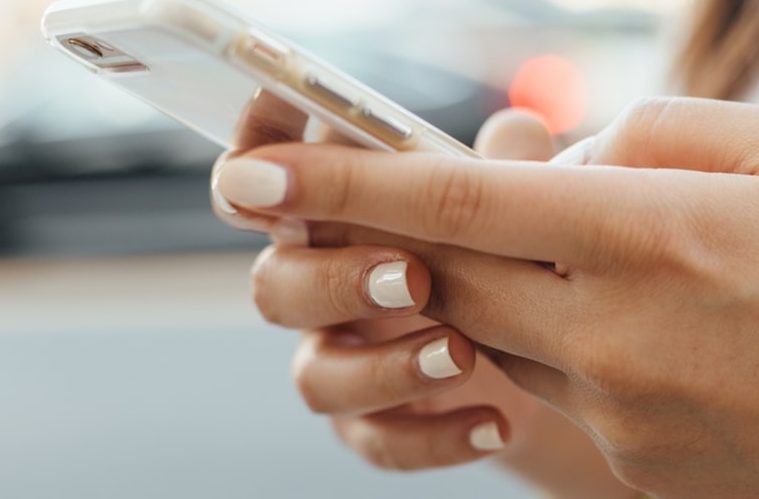Digital gadgets and social networking sites have become viral throughout the globe. They have deeply penetrated the lives and psyches of users as they provide lots of useful functions and offer convenience and multiple advantages. Unregulated connectivity, however, can be problematic and may lead to addiction. Digital devices use is rocketing. A data compiled by Apple report we typically play with our phones 80 times a day. Addiction to the digital worlds can cripple our physical and mental well-being (since these are interrelated) and can lead us to lose sight of our career routes and other aspects of our lives. In this article, I´m going to discuss the latter two effects and propose seven strategies to regulate screen consumption.
How screen time can hurt your eyes? And two ways to fight back!

My uncle, Dr. Rafei, who is an optometrist in Tripoli, Lebanon, provided me with a simple, but useful explanation about how our eyes work. Ciliary muscles surround the lens. To clearly see distant objects, our ciliary muscles relax. Conversely, when we focus on closer objects, such as smartphones and other digital gadgets, the ciliary muscles must contract in order to see.
The problem is that these muscles are not designed to be contracted for prolonged period. In other words, we may hurt our eyes from constantly looking at close objects without taking regular, restorative breaks. This is exactly why I use timed screen limits on my laptop and smartphone. My uncle also recommends, like many other experts, to take 1 minute to look at far objects every 20 minutes of constant looking at close objects, so we avoid eyestrain and eye dryness. He also urges to have your screen at a minimum of 40.7 cm from your face, so your eyes don’t have to work so hard to focus.
The second reason why screen time poses problems for your eyes’ well-being is because our phones are designed to be very bright and colorful so that they can entice us incessantly. Smartphones, computers, and TVs emit blue light, which sabotages our sleep rhythms. In their article, “Beginning the workday yet already depleted? Consequences of late-night smartphone use and sleep”, Lanaj, Johnson, and Barnes (2014) found that smartphone use for work at night increased depletion of energy the next morning as a result of its disrupting effects on sleep. In turn, morning grogginess reduces engagement during the workday. Sleep insufficiency is already costing the U.S. economy billions of dollars annually of reduced workers’ productivity, according to Rand Corporation. However, I counter the blue light and the glaring white screens by using the Dark Mode, also called night mode, on my cellphone.
It substitutes the black text on white backgrounds for white on black. Dark mode helps me to somewhat solve these problems and can regulate your screen consumption. Most importantly, don’t use digital gadgets in your bed at night.
How can your smartphone hurt your career? It does by killing your productivity and your ability to focus
In their study “Smartphone addiction, daily interruptions and self-reported productivity”, Duke and Montag (2017) argue that cellphones can distract us to a point where we no longer can reach a state of flow at work. Flow describes a state in which we are absorbed by an activity, without awareness of the passage of time, while being productive. One of the requirements to achieve a state of flow is remaining completely focused on a task or activity for several minutes without any interruptions. Even a distraction of 2.8 seconds can distort achieving the state of flow. In fact, multiple studies confirm that the mere presence of your cellphone reduces your cognitive abilities. This is exactly why I made it an unbreakable rule to keep my phone invisible where I work. Simply disconnect. Stop playing with that cursed distractor!
GM and other corporations have banned or limited cellphone use in work to reduce distractions. Tony Schwartz, the author of The Way We’re Working Isn’t Working, eloquently illustrates distractions in an article published in Harvard Business Review. He claims “distractions are costly: a temporary shift in attention from one task to another—stopping to answer an e-mail or take a phone call, for instance—increases the amount of time necessary to finish the primary task by as much as 25%.” Many employers fear important working hours are lost due to distractions like texting and surfing the internet. Since employees’ input directly affects the company’s profits. Some companies have gone far to use surveillance technologies to track their employees. For example, Microsoft Corp. gathers data on how the average employee is spending his/her workday to gauge individual employee productivity and more. In this way, companies may be better at allocating their scarce resources and differentiating between problematic workers and high performers.
A strategy I have used to counteract my phone misuse is to turn all unimportant notifications off. To further deliberate my phone use in a beneficial manner, I myself have disabled unnecessary Social Media apps on my phone like Instagram and Facebook, which are associated with anxiety, depression, and narcissism according to many studies.
I even limited the practice of reading or taking notes electronically because reading in printed format and handwritten notes is better for our brains, according to research.
To minimize your screen consumption, you also need to limit the practice of making screen time a time-filler. Indeed, it could even be said that smartphones have ruined our face-to-face conversations. In my free time, I usually spend time with my family and friends. The results? Corrected posture, deeper friendships. I started to look at people’s eyes, rather than downward into my smartphone. As a longtime complainer of neck and back pain, I also feel much better now that I am no longer bending forward constantly to look at screens.

